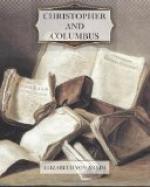She had to wait over a fortnight for the answer, and by the time she got it those other more terrible doubts had arisen, the doubts as to the exact position occupied by the Twinklers and Mr. Twist in the German secret plans for, first, the pervasion, and, second, the invasion of America; and on reading the opening lines of the letter Miss Heap found she had to sit down, for her legs gave way beneath her.
It appeared that Mrs. Twist hadn’t known where her son was till Miss Heap’s letter came. He had left Clark in company of the two girls mentioned, and about whom his mother knew nothing, the very morning after his arrival home from his long absence in Europe. That was all his mother knew. She was quite broken. Coming on the top of all her other sorrow her only son’s behaviour had been a fearful, perhaps a finishing blow, but she was such a good woman that she still prayed for him. Clark was horrified. His mother had decided at first she would try to shield him and say nothing, but when she found that nobody had the least idea of what he had done she felt she owed it to her friends to be open and have no secrets from them. Whatever it cost her in suffering and humiliation she would be frank. Anything was better than keeping up false appearances to friends who believed in you. She was a brave woman, a splendid woman. The girls—poor Mrs. Twist—were Germans.
On reading this Miss Heap was all of a tingle. Her worst suspicions hadn’t been half bad enough. Here was everything just about as black as it could be; and Mr Twist, a well-known and universally respected American citizen, had been turned, by means of those girls playing upon weaknesses she shuddered to think of but that she had reason to believe, from books she had studied and conversations she had reluctantly taken part in, were not altogether uncommon, into a cat’s-paw of the German Government.
What should she do? What should she say? To whom should she go? Which was the proper line of warning for her to take? It seemed to her that the presence of these people on the Pacific coast was a real menace to its safety, moral and physical; but how get rid of them? And if they were got rid of wouldn’t it only be exposing some other part of America, less watchful, less perhaps able to take care of itself, to the ripening and furtherance of their schemes, whatever their schemes might be?




